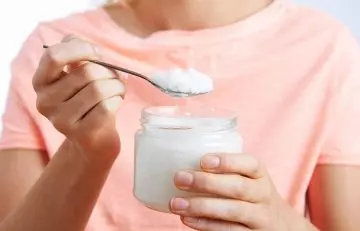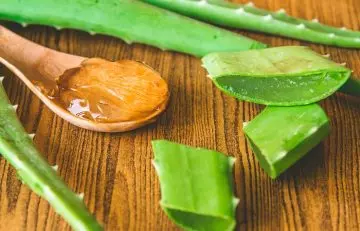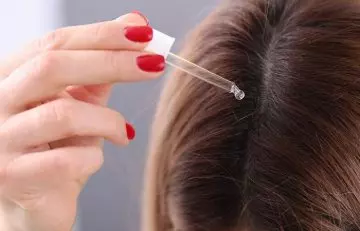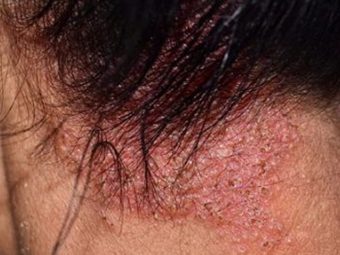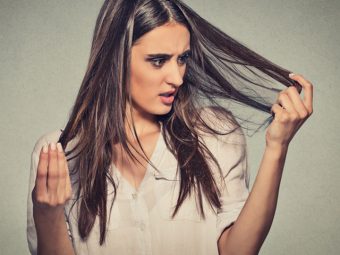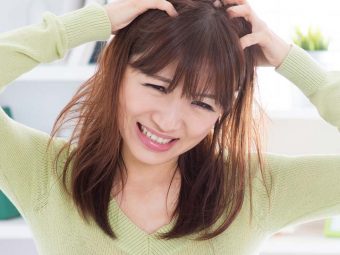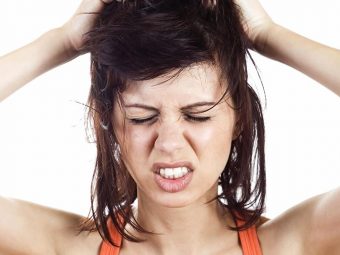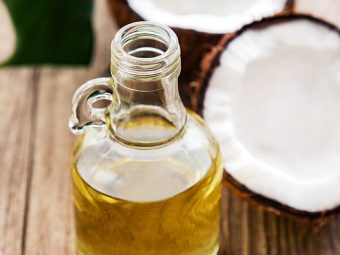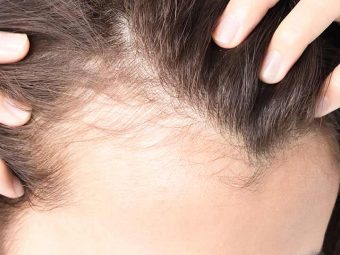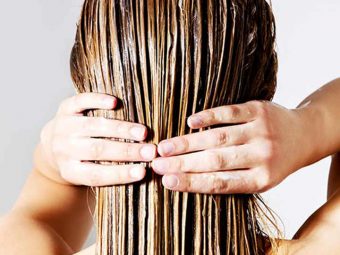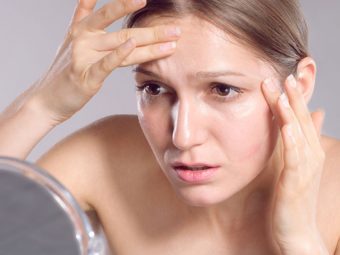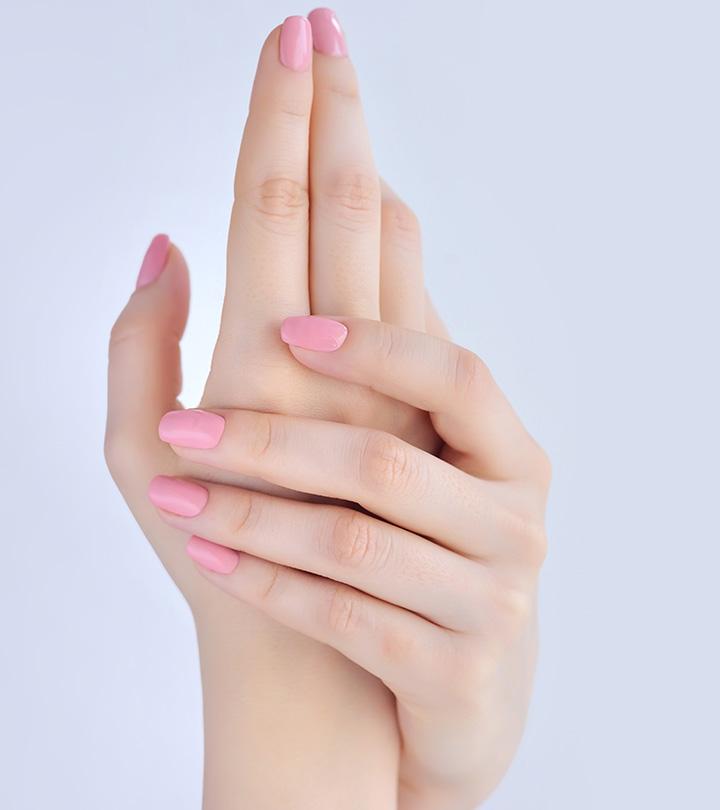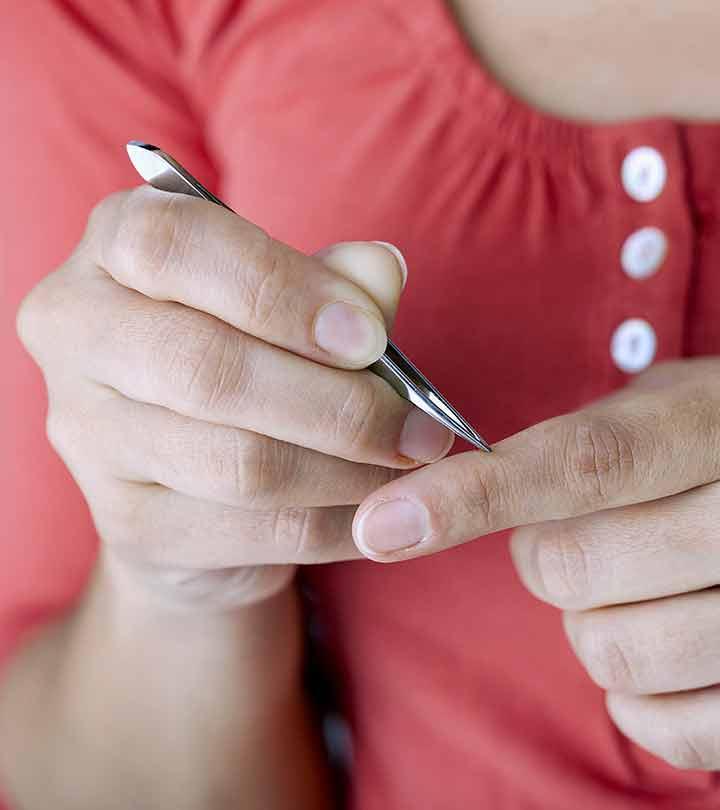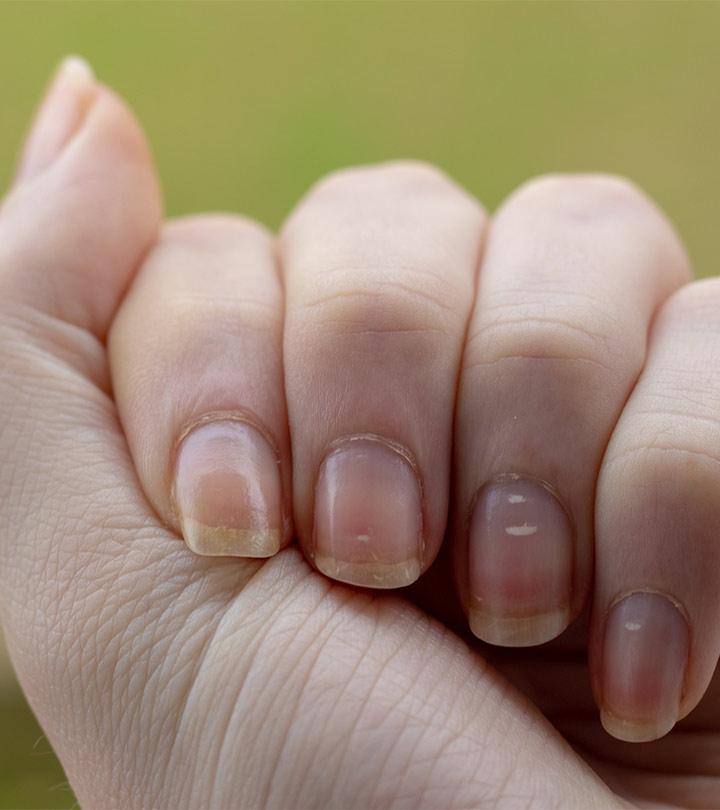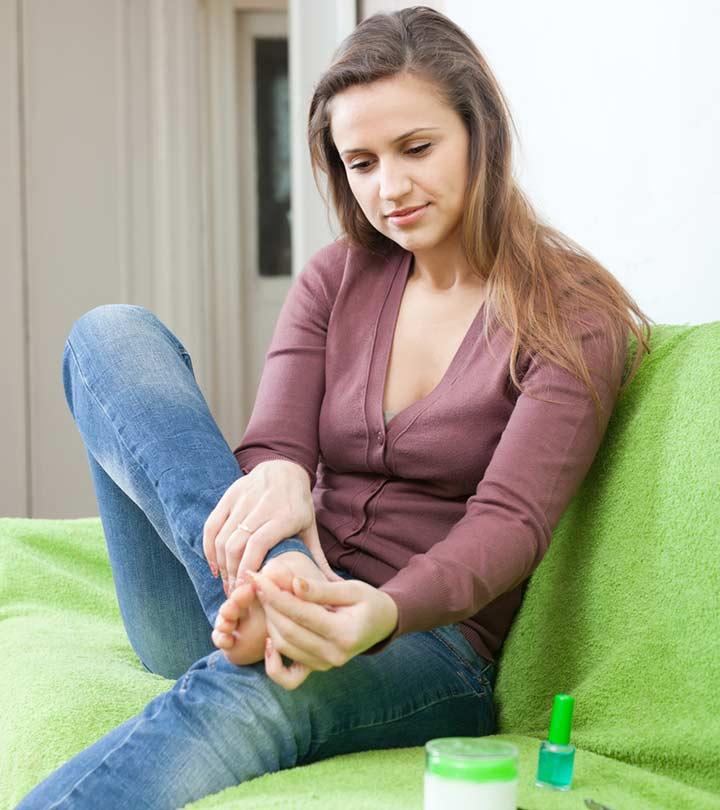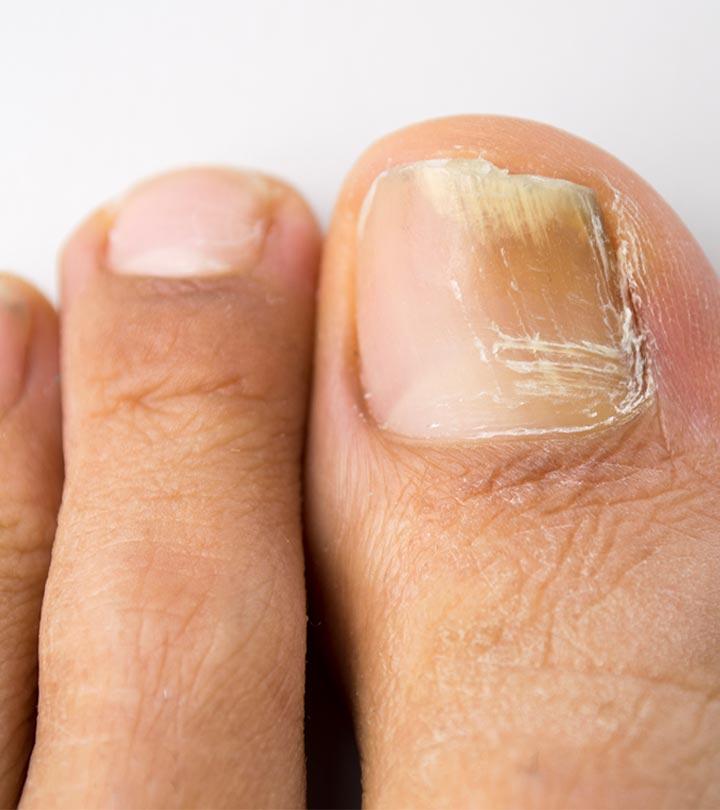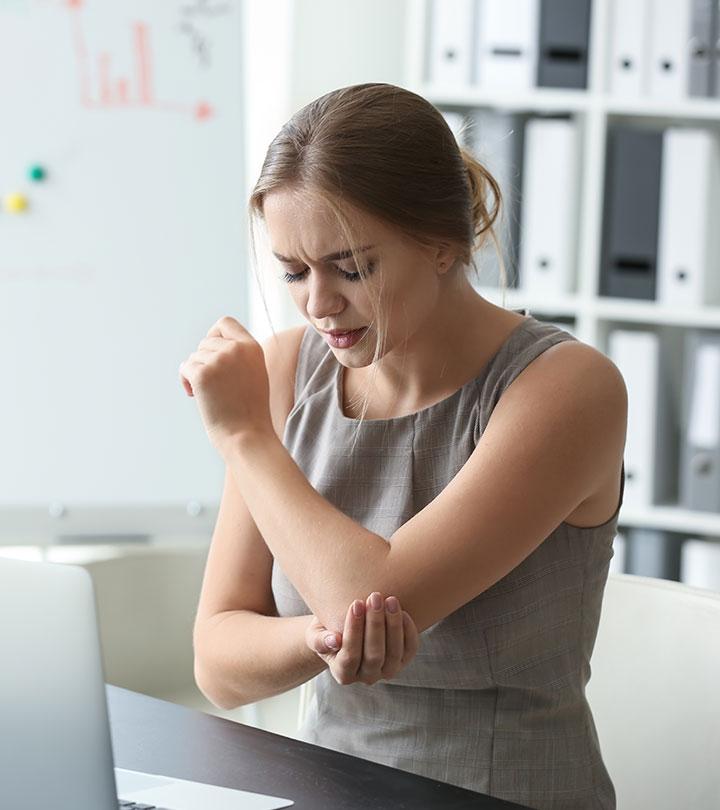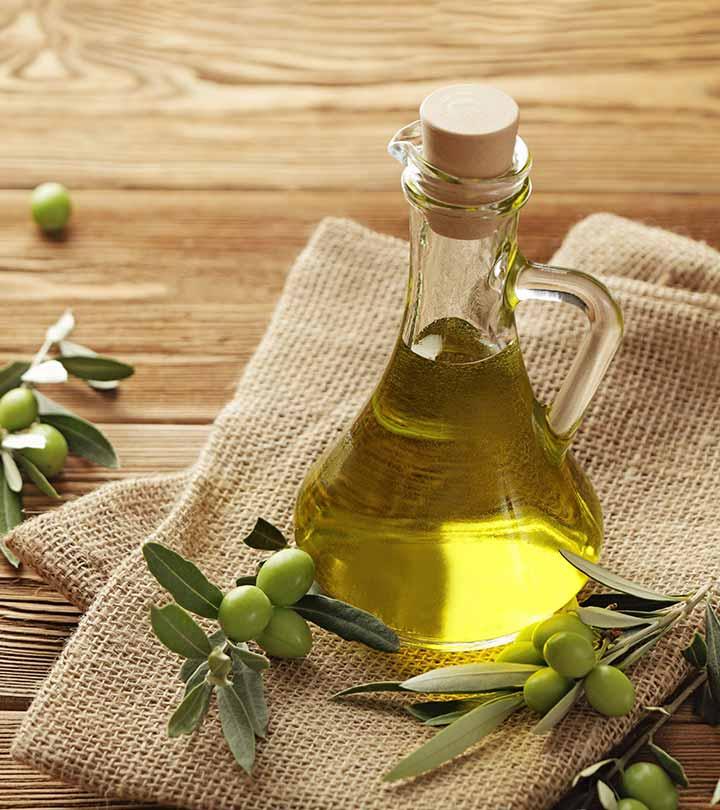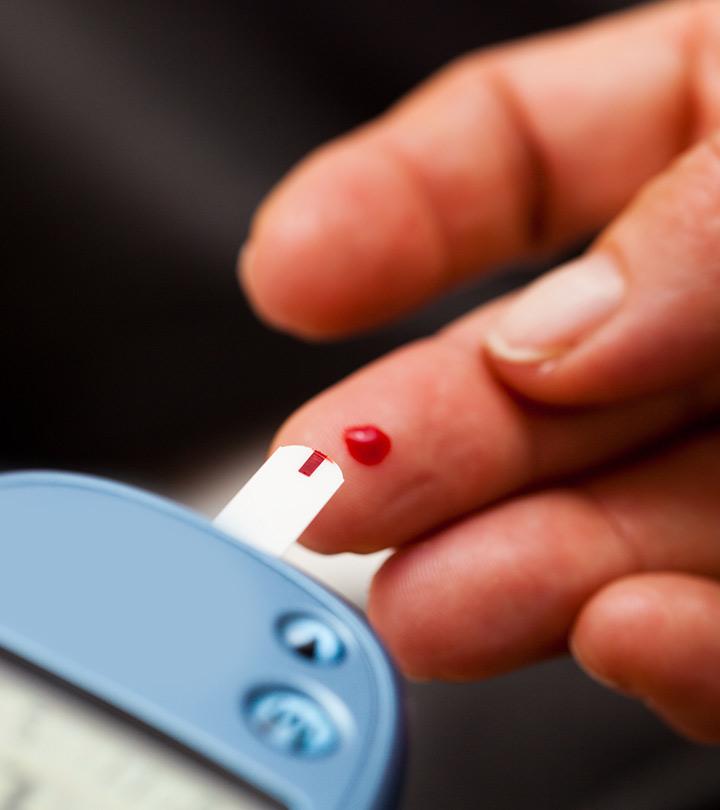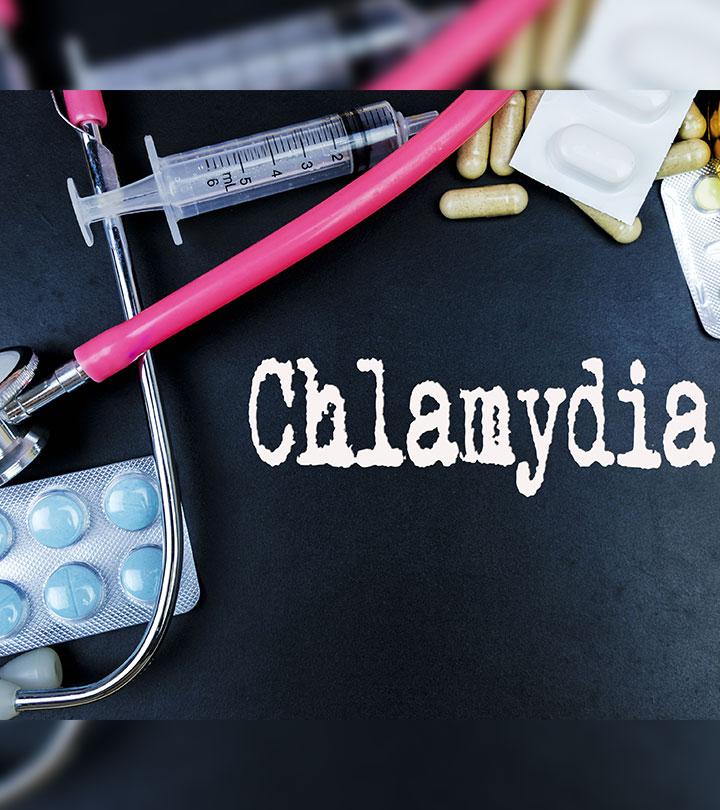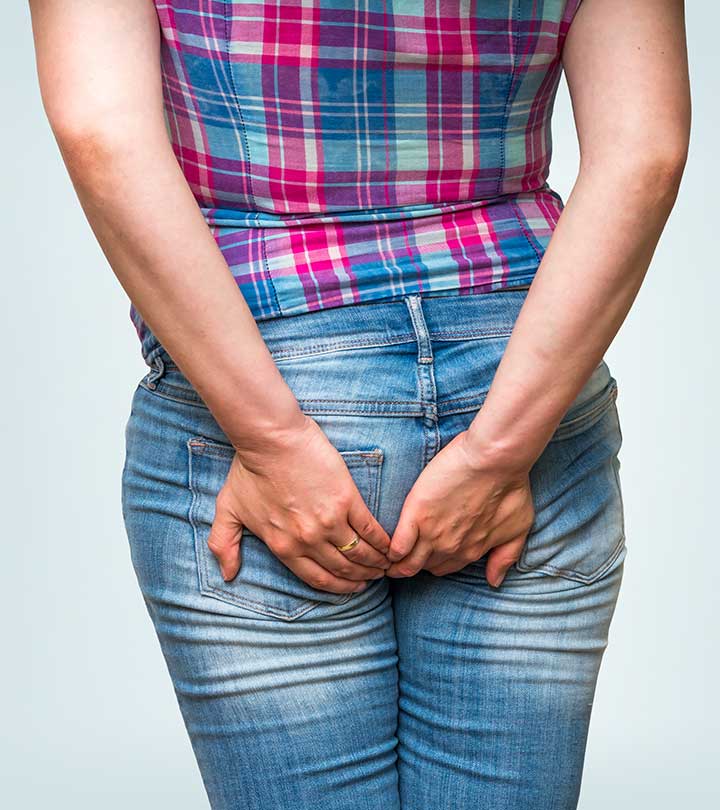10 Best Home Remedies For Dry Scalp And Prevention Tips
Soothing the discomfort caused by dry scalp got easier with these effective and gentle remedies.
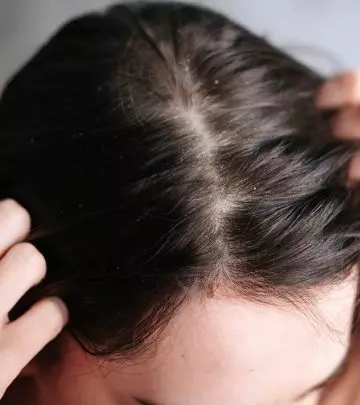
Image: Shutterstock
If you feel like scratching your head all the time, chances are you may have a dry scalp. We all develop a dry scalp at some point. Be it lifestyle changes, a shift in the weather, or some chemical in your product, a dry scalp can develop due to several reasons. Fortunately, there are some natural ways to get rid of dry scalp effectively. Keep in mind that lack of proper hygiene and not washing your hair regularly can give your a dry scalp. It may also be a symptom of a medical condition such as eczemai XA disease in which regions of the skin develop symptoms like roughness, inflammation, and bleeding blisters that itch. or psoriasis. In this article, we explore some of the causes of dry scalp and ingredients you can use to make your own dry scalp treatment. Read on to discover how to get rid of dry scalps.
In This Article
What Causes Dry Scalp?
A dry scalp is the result of dormant and/or underactive oil glands in the scalp, which are not capable of producing the required amount of natural oil in your skin. Some of the common causes are:
- Prolonged use of harsh shampoos that contain a lot of chemicals
- Fungal infection caused by Malassezia fungi
- Lack of nutrients in the body due to improper diet
- Exposure to extreme weather conditions
- Excess use of styling products
- Neglect of hair care, including unhealthy beauty habits, lack of oiling, and conditioning treatments (1).
Dr. Anna Chacon, MD, FAAD, a double board-certified dermatologist, says some skin conditions can also cause dry scalp. She says, “Other conditions that can cause dry scalp or flaking similar to dandruff include contact dermatitis, eczema, and scalp psoriasis.” The first step in treating your dry scalp is to zero in on the underlying cause. Once you know that, you can make a few required modifications to your hair care routine. We will now explore the natural remedies to get rid of dry scalp. These home remedies can help soothe the itchiness, reduce flakiness, and restore your scalp’s natural moisture. Some of the best ingredients for a dry scalp treatment at home are listed below. Take a look!
Home Remedies To Get Rid Of Dry Scalp
1. Tea Tree Shampoo
If the dryness is due to a fungal infection, you could use tea tree oil as it is a potent antifungal agent (2). It also unclogs the pores and helps regulate the natural oil production.
You Will Need
- Tea tree oil
- Shampoo
What You Have To Do
- Add a few drops of tea tree oil to your regular shampoo and shake the bottle well.
- Use this as you usually do to wash your hair.
- Rinse with water.
How Often You Should Do This
Rinse your hair with this essential oil-infused shampoo twice a week.
2. Apple Cider Vinegar For Dry Scalp
ACV exhibits antimicrobial properties (3). It is also thought to balance the scalp’s pH. This, in turn, may help restore the normal functioning of the oil glands and can provide relief from a dry scalp.
You Will Need
- 2-3 tablespoons apple cider vinegar
- Water
- Cotton ball
What You Have To Do
- Dilute the apple cider vinegar with water and apply it to your scalp with a cotton ball.
- Massage your scalp with your fingers for 2-3 minutes.
- Leave the vinegar on for about 10 minutes and then rinse it off with cool water.
How Often You Should Do This
Repeat this not more than twice a week.
Note: Make sure you dilute the ACV before using it on your scalp. You can also add some honey to the mixture.
3. Coconut Oil
Coconut oil is a natural emollienti XMoisturizing products used directly on the skin to soothe and hydrate it and are often used to help manage dry, itchy skin conditions. and is widely used to treat skin infections (4). This may help with scalp hydration and reduce dryness. Dr. Chacon adds, “Applying heated oil or a deep conditioner twice a week will help hydrate and calm an irritated, dry scalp.”
You Will Need
- Coconut oil
- A few drops of tea tree oil (optional)
What You Have To Do
- Warm up the coconut oil slightly. You may add tea tree oil to this.
- Apply the oil on your scalp and massage for 5-7 minutes.
- Keep it on for at least an hour before washing your hair. It is best if you keep the oil on overnight.
How Often You Should Do This
Repeat this oil treatment twice a week.
4. Lemon Juice
Lemon juice is a rich source of citric acid that can help in balancing the pH of your scalp (5). This may, in turn, help reduce the dryness of your scalp.
You Will Need
1/2 lemon
What You Have To Do
- Divide your hair into sections.
- Apply light pressure (to release the lemon juice) and gently scrub the lemon piece on your scalp.
- Leave it on for about five minutes.
- Rinse and condition your hair as usual.
How Often You Should Do This
Do this up to two times a week.
Note: Lemon juice can cause a stinging sensation on your skin if you are allergic to it. Hence, do a patch test before trying out this remedy.
5. Onion Juice
Onions are rich in phytochemicals that can reduce the dryness of your scalp (6). The topical application of onion juice may eliminate flaky skin and also reduce dandruff.
You Will Need
- 1/4 cup onion juice
- 1 tablespoon honey
- Cotton ball
What You Have To Do
- Grate an onion and extract the juice.
- Add honey to this juice and mix well.
- Apply this mixture to your scalp with a cotton ball and let it sit for 15-30 minutes.
- Wash your hair with your regular shampoo.
How Often You Should Do This
Apply onion juice on your scalp twice a week initially. Once the dry scalp condition has improved, you can continue using onion juice once every fortnight for healthy hair growth.
6. Aloe Vera Juice
Studies show that aloe vera can nourish your scalp with amino acids, vitamins, sugars, and fatty acids (7). It has anti-inflammatory and antimicrobial properties as well that could eliminate any infection and reduce dryness of the scalp.
You Will Need
- An aloe vera leaf
- Water
What You Have To Do
- Extract fresh aloe vera gel from the leaf.
- Add some water to this and mix well to get a juice-like consistency.
- Apply this juice on your scalp and hair. Massage your scalp for a few minutes.
- Leave the aloe vera on for 20 minutes and then rinse your hair as usual.
How Often You Should Do This
Repeat this twice a week.
7. Yogurt
Yogurt soothes the scalp and contains Lactobacillus paracaseii XLactic acid bacteria that are frequently employed in the fermentation of dairy products and as probiotic cultures. that helps in restoring the skin barrier (8). This, in turn, helps eliminate dryness and dandruff. The high protein content of eggs nourishes the scalp and reduces dryness.
You Will Need
- 1 egg
- 2-3 tablespoons unflavored yogurt
- 1 tablespoon honey
What You Have To Do
- Beat the egg along with the yogurt to get a smooth paste.
- Add honey to this mixture.
- Apply this mask on your scalp and hair.
- Let it sit for half an hour and then wash it off with your regular shampoo.
How Often You Should Do This
Do it once a week.
8. Baking Soda
Baking soda is an antifungal agent (9). It can help fight any infection that may cause dryness of the scalp.
You Will Need
- 3-4 tablespoons baking soda
- Rose water
What You Have To Do
- Make a paste of baking soda and rose water.
- Apply the paste on the scalp and massage gently for 2-3 minutes.
- Rinse with cool water.
How Often You Should Do This
Do this twice a week.
 Quick Tip
Quick Tip9. Vitamin E
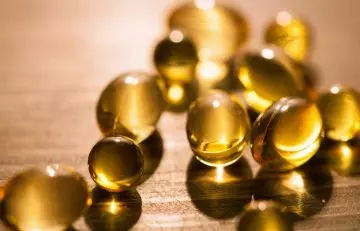
Vitamin E oil will keep your scalp hydrated and also protect it from free radical damage as it is an antioxidant (10), (11). This may help resolve the issue of dryness of the scalp.
You Will Need
5-10 vitamin E capsules
What You Have To Do
- Prick the capsules carefully and empty the oil present inside in a bowl.
- Apply the oil on your scalp and massage well for 5-10 minutes.
- Leave it for an hour and then wash your hair as usual.
How Often You Should Do This
Massage your scalp with vitamin E oil at least once a week.
Note: Use this remedy only after consulting your dermatologist.
10. Olive Oil
Olive oil has a very high lipid penetration within the epidermis (12). This property makes it highly moisturizing, which may help nourish a dry scalp and eliminate dandruff.
You Will Need
- 1 egg yolk
- 2-3 tablespoons olive oil
- 1 teaspoon lemon juice
What You Have To Do
- Beat the egg yolk and add the other ingredients to it. Mix well.
- Apply this mixture on the scalp and let it sit for 30 minutes.
- Rinse your hair using shampoo and lukewarm water.
- Follow up with a cool water rinse.
How Often You Should Do This
Apply this mask once a week.
You can tackle the irritation caused by a dry scalp with some extra care and attention. Along with following these remedies, drinking plenty of water is essential to hydrate your skin and hair from within.
Hannah, a blogger, shared how she used hot oil treatments to manage a dry scalp and dandruff. She writes, “Hot Oil Treatment is when you mix your favourite hair oils or butters, heat or warm it and then apply it to your hair not forgetting your scalp (it needs nourishment too). Remember to spritz some water before applying. It helps keep the oil in your hair and allow it to do its work (i).” She had used hemp seed oil, neem oil, and shea oil. She explained the process of massaging warm oils and leaving them on for about 20 minutes to improve blood circulation and repair damaged hair.
Apart from using remedies and OTC treatment options, you can also avoid increasing the dryness of your scalp. Here are a few ways to prevent the dryness of the scalp.
Prevention Tips
- Avoid using strong chemically formulated shampoos and conditioners as it can increase the dryness of your scalp.
- Avoid shampooing your hair and scalp very often as it can strip your scalp of natural oils.
- Avoid using warm air from the blow dryer to dry your hair as it can increase the dryness of your scalp.
- Make sure to massage your scalp regularly with oil to increase blood circulation and maintain the natural moisture balance of your scalp.
- Include nuts, eggs, seafood, chicken, tofu, dairy products, soybeans, canola oil, papaya, oranges, and green leafy vegetables in your healthy diet. This will take care of your dose of zinc, iron, vitamins, and omega-3 fatty acids required for a healthy scalp. If dryness in your scalp is the result of a deficiency of nutrients, this tip will help you. Dr. Chacon says, “If you often experience severe discomfort from having a dry scalp, it may interfere with your everyday activities. Uou may want to see a doctor if you start to experience more serious signs of dry scalps, such as bleeding, cracking, or hair loss.”
 Quick Tip
Quick TipDry scalp and dandruff are two different scalp conditions. While they share some common symptoms, they have different causes. Let’s find out in detail in the following section.
Differences Between Dry Scalp And Dandruff
Dry scalp usually occurs due to a lack of moisture. It is triggered by low humidity, excessive hair washing, cold weather, and harsh hair products, whereas dandruff occurs due to the Malassezia fungus.
While itching and small white flakes are symptoms of a dry scalp, dandruff is characterized by larger white flakes and is often accompanied with redness and inflammation.
While excess oil on the scalp allows the Malassezia fungus a favorable environment to grow, dry scalp occurs when there is not enough oil on the scalp. Moisturizing shampoos and conditioners may help alleviate a dry scalp, whereas you might have to seek advice from a professional hair care specialist if dandruff is not under control by the use of anti-dandruff shampoos.
Infographic: Tips For Managing A Dry Scalp
Factors like fungal infection, lack of essential nutrients, or poor hair hygiene can lead to a dry scalp. The good news is you can use simple and affordable ingredients from your pantry to combat this issue. Additionally, we have listed a few tips to help you manage your dry scalp easily. Check out the infographic below to know more! Illustration: StyleCraze Design Team
A dry scalp is an uncomfortable condition characterized by itchiness and dryness that develops due to under production of sebum on the scalp. The hair follicles on the scalp may have inadequate sebum due to various reasons such as nutritional deficiencies, fungal infections, exposure to harsh chemicals in hair care products, extreme weather conditions, and inadequate hair care practices. While it is an uncomfortable problem, it can be resolved with the help of home remedies discussed here like tea tree oil products, aloe vera gel, natural oils like coconut and olive oil, baking soda, and onion juice. In addition, you need to avoid harsh hair care products and practice stress management. If the dryness does not resolve, you should consult a physician to check for possible underlying conditions behind your dry scalp.
Frequently Asked Questions
Does a dry scalp cause hair loss?
Yes. Dryness of the scalp can hinder hair growth and make the hair follicles weaker, causing hair loss.
What does a dry scalp look like?
An itchy scalp with white patches or flakes is one of the typical characteristics of a dry scalp.
What is the difference between a dry scalp and dandruff?
A dry scalp has small, white flakes, while the dandruff flakes can become bigger and waxy/greasy if you don’t use the right treatment products. Dandruff involves the presence of fungal infection on your scalp.
What is the difference between a dry scalp and psoriasis?
When you have a dry scalp, the skin on your scalp is dry and itchy with white flakes. If you have scalp psoriasisi XA skin condition that typically affects the knees, elbows, and scalp and leads to a rash with itchy, scaly patches. , the dryness and itchiness may be aggravated (with some kinds of scalp psoriasis) with scratching, leading to bleeding. Also, the skin is inflamed, red, and sensitive. However, in some cases, scalp psoriasis could also present as asymptomatici XA situation when you are in an early stage of a disease or have recovered from it and have no symptoms. thick, scaly patches.
What shampoo is good for dry scalp?
Choose a hydrating shampoo that contains scalp nourishing nutrients. It is best to stay away from chemical-laden shampoos that will only aggravate the condition.
What happens if you put salt on a dry scalp?
Sprinkling table salt on your scalp and massaging can help relieve the dryness and flakes. Salt is a mild antimicrobial agent that can help with exfoliation. Do not forget to wash off the salt with some shampoo.
What can I put in my hair to get rid of red bumps and dry scalp?
The dead skin accumulates and clogs the pores, leading to bumps on the scalp. These bumps can also become infected and develop into acne. Remedies like tea tree oil shampoo and apple cider vinegar work well to get rid of these bumps along with the scalp dryness. You can also use tea tree oil diluted with a carrier oil if these bumps have opened up.
What to do for a dry scalp and color-treated hair?
Many of the remedies given in this article can be used by people with a dry scalp and color-treated hair. Hot oil treatment, aloe vera, and mayonnaise are the best remedies for color-treated hair as they will not interfere with your hair color. Do not use remedies that contain any type of acids, such as lemon juice or apple cider vinegar, for dyed hair.
What to do for dry scalp in newborns?
Use pure and organic oils, such as virgin coconut oil or almond oil, for newborns. Apply the oil on the baby’s head and massage very gently. You can use a soft comb to remove the flakes after leaving the oil on for 10-15 minutes.
What to use for itchy, dry scalp in kids?
You can use virgin olive oil, baby oil, or castor oil to moisturize the dry and itchy scalp in kids.
Key Takeaways
- Neglect of hair care, imbalanced diet, use of harsh medicated products, and heat styling are some of the main reasons behind a dry scalp.
- Massaging your scalp with warm coconut or olive oil can improve blood circulation and maintain the natural moisture balance of your scalp.
- Using natural ingredients like aloe vera and yogurt as weekly deep-conditioning treatments can nourish your scalp and prevent itching.
- Including nuts, dairy products, and fruits and vegetables in your diet can combat scalp dryness caused due to nutritional deficiencies.
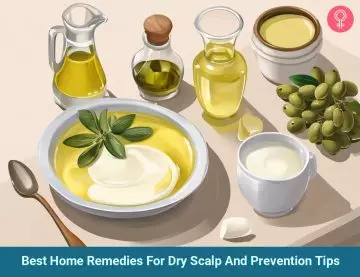
Image: Stable Diffusion/StyleCraze Design Team
Learn how to treat dry scalp at home with the video below! Get tips and tricks to soothe and nourish your scalp for healthy, hydrated hair.
Personal Experience: Source
StyleCraze's articles are interwoven with authentic personal narratives that provide depth and resonance to our content. Below are the sources of the personal accounts referenced in this article.
i. Hot oil treatmenthttps://naturallyhappykinkyhair.wordpress.com/2019/08/12/hot-oil-treatment/
References
Articles on StyleCraze are backed by verified information from peer-reviewed and academic research papers, reputed organizations, research institutions, and medical associations to ensure accuracy and relevance. Read our editorial policy to learn more.
- The Itchy scalp – scratching for an explanation, Experimental Dermatology, US National Library of Medicine, National Institutes of Health.
https://www.ncbi.nlm.nih.gov/pmc/articles/PMC3233984/ - Treatment of dandruff with 5% tea tree oil shampoo. Journal of the American Academy of Dermatology, US National Library of Medicine, National Institutes of Health.
https://www.ncbi.nlm.nih.gov/pubmed/12451368 - Antimicrobial activity of apple cider vinegar against Escherichia coli, Staphylococcus aureus and Candida albicans; downregulating cytokine and microbial protein expression, Scientific Reports, US National Library of Medicine, National Institutes of Health.
https://www.ncbi.nlm.nih.gov/pmc/articles/PMC5788933/ - In vitro anti-inflammatory and skin protective properties of Virgin coconut oil, Journal of Traditional and Complementary Medicine, US National Library of Medicine, National Institutes of Health.
https://www.ncbi.nlm.nih.gov/pmc/articles/PMC6335493/ - Shampoo and Conditioners: What a Dermatologist Should Know? Indian Journal of Dermatology, US National Library of Medicine, National Institutes of Health.
https://www.ncbi.nlm.nih.gov/pmc/articles/PMC4458934/ - Ethnopharmacological survey of home remedies used for treatment of hair and scalp and their methods of preparation in the West Bank-Palestine, BMC Complementary and Alternative Medicine, US National Library of Medicine, National Institutes of Health.
https://www.ncbi.nlm.nih.gov/pmc/articles/PMC5499037/ - ALOE VERA: A SHORT REVIEW, Indian Journal of Dermatology, US National Library of Medicine, National Institutes of Health.
https://www.ncbi.nlm.nih.gov/pmc/articles/PMC2763764/ - The positive benefit of Lactobacillus paracasei NCC2461 ST11 in healthy volunteers with moderate to severe dandruff. Beneficial Microbes, US National Library of Medicine, National Institutes of Health.
https://www.ncbi.nlm.nih.gov/pubmed/28789559 - Antifungal activity of sodium bicarbonate against fungal agents causing superficial infections. Mycopathalogia, US National Library of Medicine, National Institutes of Health.
https://www.ncbi.nlm.nih.gov/pubmed/22991095 - Influence of vitamin E acetate on stratum corneum hydration. Drug Research, US National Library of Medicine, National Institutes of Health.
https://www.ncbi.nlm.nih.gov/pubmed/9706379 - Vitamin E in dermatology, Indian Dermatology Online Journal, US National Library of Medicine, National Institutes of Health.
https://www.ncbi.nlm.nih.gov/pmc/articles/PMC4976416/ - Anti-Inflammatory and Skin Barrier Repair Effects of Topical Application of Some Plant Oils, MDPI, US National Library of Medicine, National Institutes of Health.
https://www.ncbi.nlm.nih.gov/pmc/articles/PMC5796020/






